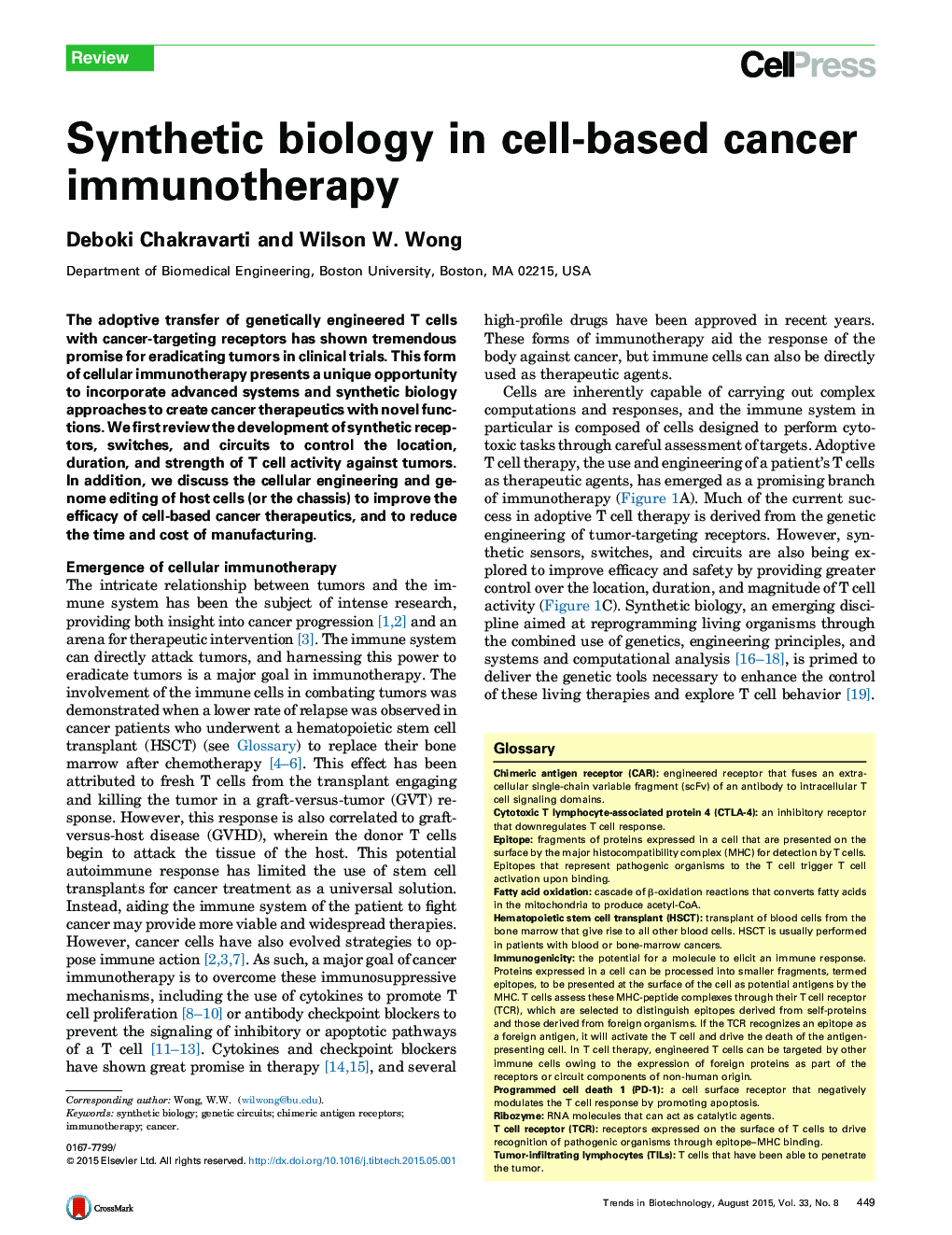| Article ID | Journal | Published Year | Pages | File Type |
|---|---|---|---|---|
| 36918 | Trends in Biotechnology | 2015 | 13 Pages |
•Synthetic biology will play an important role in advancing adoptive T cell therapy.•Engineered receptors and genetic circuits can make cell-based therapies safer and more powerful.•Cellular engineering and genome editing can further improve the T cell as a chassis for therapy.
The adoptive transfer of genetically engineered T cells with cancer-targeting receptors has shown tremendous promise for eradicating tumors in clinical trials. This form of cellular immunotherapy presents a unique opportunity to incorporate advanced systems and synthetic biology approaches to create cancer therapeutics with novel functions. We first review the development of synthetic receptors, switches, and circuits to control the location, duration, and strength of T cell activity against tumors. In addition, we discuss the cellular engineering and genome editing of host cells (or the chassis) to improve the efficacy of cell-based cancer therapeutics, and to reduce the time and cost of manufacturing.
